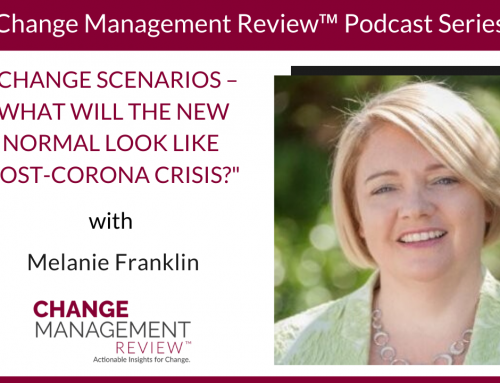These are challenging times for colleges and universities. Competition for students has intensified as the number of high school graduates is declining. There is increased public scrutiny regarding the value of college degrees given the high cost of tuition at many institutions and the resulting debt that burdens many students. Colleges and universities have also been criticized for failing to maintain academic quality, graduate students at a high enough rate, and prepare students for careers.
These factors, along with unique challenges such as its rural location, contributed to the decision by the Sweet Briar College (SBC) board of directors to announce in March of 2015 that SBC would close at the end of the academic year in May 2015. This announcement, however, was met by a rapid and generous response from SBC alumnae. A new president (Phillip Stone) was hired and a new board of directors was formed. In May of 2017, SBC hired a long-term president, Meredith Woo. Although the future looks brighter for SBC, challenges still remain. To meet these challenges, Dr. Woo recently announced sweeping changes.
One part of this change agenda is a revised SBC core curriculum, which will become more interdisciplinary and focused on leader development. To support this curriculum change, SBC will eliminate departments and create three centers of excellence (COE) in their place. Additional opportunities for experiential learning (research, internships, and study abroad) will be offered. A new academic calendar with two shorter fall and spring semesters (12 weeks each) and two three-week terms, along with funding for students to participate in these opportunities, will support the increased emphasis on experiential learning. Finally, tuition and other costs will be lowered to make SBC competitive with top public and private colleges and universities.
It will take years to implement and see the impact of these changes; however, the speed that the campus was able to gain consensus on a transformative change agenda is impressive and provides key lessons for other higher education institutions.
- Transformational change can advance existing missions and traditions. The mission of SCB has not changed since 2004. Recently announced changes are not a departure from this SBC mission; they are a way for SBC to better achieve its mission in the current environment. While the curricular, co-curricular, organizational, schedule, and tuition reforms at SBC represent a departure from past practices, they are consistent with the traditions of SBC and will advance its mission. Colleges and universities can employ transformational change to better fulfill their missions and strengthen their identity.
- For transformational change to be successful, it must touch the entire institution. When significant change efforts are implemented in a piecemeal manner or do not involve the entire organization, they will not have the transformational effect desired by SBC. The SBC changes will occur across campus and impact the curriculum, time allocation, organizational structure, and tuition. If the core curriculum is to be truly interdisciplinary, the organizations that can cause disciplinary silos (departments) had to be replaced with interdisciplinary centers of excellence. To strengthen its experiential learning program, the way SBC allocated time had to be changed (new academic calendar) and additional funding provided to students. For the SBC experience to be accessible and desirable to prospective students, tuition had to be lowered. If colleges and universities want to truly transform, change must occur across the institution.
- Colleges must keep moving forward. The widespread support from SBC alumnae when the board announced that SBC would close suggests that SBC has been doing something right. Yet great achievements such as alumnae satisfaction cannot lead to complacency. Institutions must look over the horizon for threats and opportunities, take advantage of innovations happening across higher education, and consider what knowledge and skills college graduates need to thrive in their work and life. Doing this is not selling out. It is essential that institutions continue to improve how they fulfill their missions and adapt to changing conditions.
- Colleges must be distinctive and demonstrate the value of their educational experience. It is not enough for the mission statement to be distinctive or to be a women’s college. The entire institution and the student experience must be organized to support the mission and strengthen the institution’s distinctiveness. Changes like an interdisciplinary core curriculum focused on leader development make SBC truly distinctive and makes clear the value it offers its students. In this competitive environment, colleges and universities must not only say they are distinctive. They must organize and create programs that make this distinctiveness a reality, and they must do so in a way that is visible to prospective students.
- Colleges are capable of changing faster than many think. Higher education is often criticized for the slowness with which it changes. The shared governance process accounts for some of this slowness as does the resistance to or lack of knowledge of ideas that have been successfully implemented at other institutions. The SBC reforms demonstrate that it is possible for a college to gain consensus on a bold change agenda in a short time through a process that is faculty led. As institutions consider how to respond to the challenges and opportunities they face, they must not underestimate their ability to advance significant change in a short period time.
Although SBC has a great deal of work to do in the coming months and years, and success is not guaranteed, its willingness and ability to agree on a transformational change agenda provides an example for other colleges and universities. Although the details will differ, the lessons above are transferrable to other types of organizations.
Chris Mayer, Ph.D., is a lieutenant colonel in the U.S. Army. He currently serves as associate dean for strategy, policy, and assessment and associate professor of philosophy at the United States Military Academy.





[…] assignment help essay can be an effective guide that you supply you using the basic hints about the Achieving Transformational Change in Higher Education best way to manage entrance newspapers, however bear in mind that most papers aren't similar job to […]
[…] measures to dig yourself out of your article and write an example article you detect it is Achieving Transformational Change in Higher Education possible to become more pleased […]